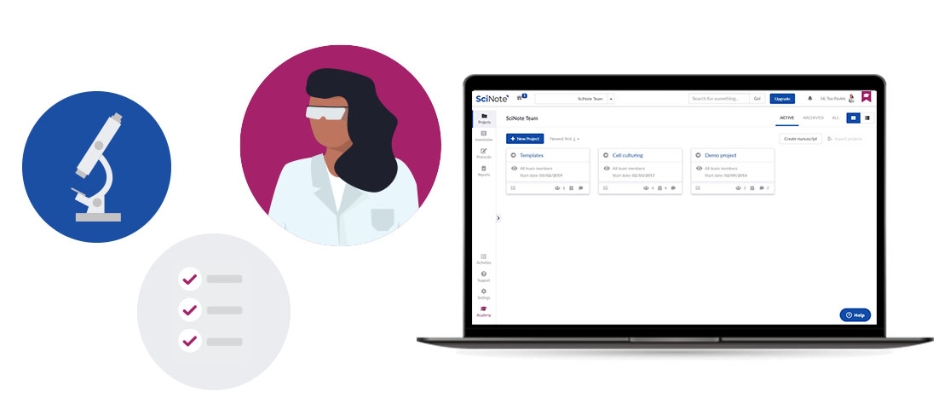Digital Labs of the Future
![]() 2 min read
2 min read
Today, we are having a brain-teasing discussion with Klemen Zupancic, CEO sciNote LLC, PhD Biomedicine.
We live in the age of artificial intelligence, internet of things, machine learning and exponential rise of new technologies. Today’s software could generate our photos from our genetic code, determine our age, sex and height from our voice, recognize the syndromes from our portraits, enable us to feel through bionic limbs, walk through the virtual reality labs and much more… while at the same time, we still write our notes on paper.
Klemen’s scientific knowledge combined with his passion for cutting edge technology has been the drive behind sciNote LLC. Alongside his business career, Klemen was focused on developing methods for diagnosing and treating cancer. He is also a co-founder of BioSistemika LLC, software development company for life science laboratories.
Klemen, for someone who is new to the subject, can you explain how the modern technology is entering our everyday lab work?
If I had to use one word, it would be “slowly”. And I am not talking about laboratory equipment that is usually cutting edge. I am talking about the use of smart devices, the ones that we are used to in our daily lives that make tedious tasks simpler. And we all know there are a lot of tedious tasks in the lab.
Which major changes will labs face in the next couple of years?
Although the adoption of internet of things is slow, there are already examples of it. Fully automated laboratories are nothing new, especially in pharmacy, but it is very difficult to use the same approaches in basic research, simply because the work is too diverse. There is a need for more flexible software tools which scientists can use for their personal needs and collaboration. The other challenge that we can are also already facing is the interoperability of data (exchange and making use of information) produced by all laboratory devices.
Interoperability as a way to connect lab instruments seems like the right way to go if we take into account the increasing amounts of data. How do you think software development companies can help out?
My personal belief is that the true interoperability can only be achieved through openness. This is why we have open communication as a high value in the company and this is why SciNote has been developed under the open source license. I don’t believe we are actually adding value by writing the code, but rather than by building a community of users and contributors, which makes it easier for every other to integrate the information from their end.
“Fully automated laboratories are nothing new, especially in pharmacy, but it is very difficult to use the same approaches in basic research, simply because the work is too diverse. There is a need for more flexible software tools which scientists can use for their personal needs and collaboration.”
Do you see the use of digital, online notebooks as one of the first steps towards solving the issues that arise with handling ever increasing amounts of data?
Laboratory notebook is such a fundamental tool to every scientist and is therefore hard to let go. But if we ever want to let the technology help us, we need to start digitally inputting our research data. And an electronic laboratory notebook is a great place to start.
Do you think that web-based software is safe enough? How high is the risk of losing our data or our data being hacked?
Nothing is “un-hackable”, but it is much easier to steal data from someone’s personal computer than hack into Amazon and Google, so I trust them, but I also keep in mind that my data is never 100% safe. It is a good idea to back the data up and electronic laboratory notebooks allow automatic backups for your data.
For the end – can you share with us your vision of a digital lab? How do you envisage stepping into the lab of the future?
It will start with a few connected devices and automated processes. It will take some time before the standards are consolidated in the community, but eventually software will learn how to communicate with hardware. I believe that at that point we will be able to automate a lot of scientific process and really focus our attention on understanding the underlying laws that govern the universe; which is what science is all about.


